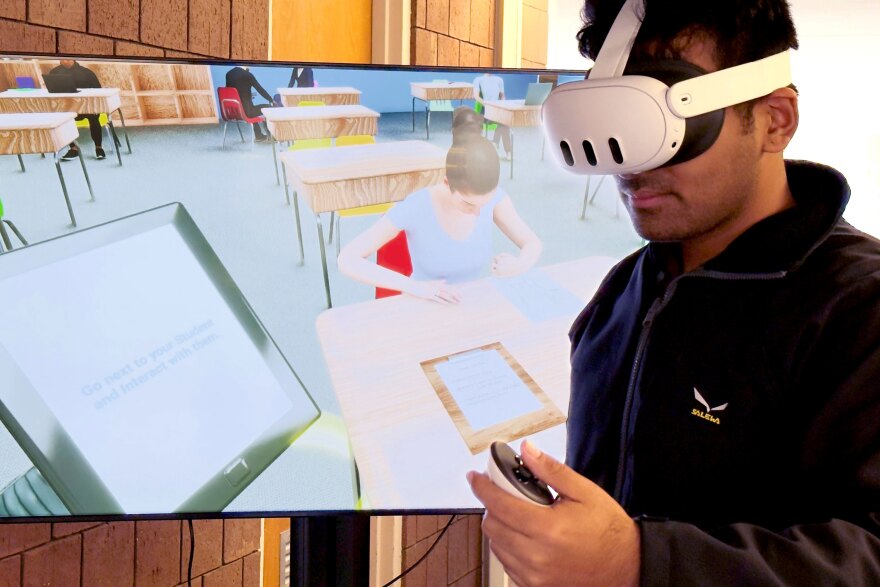Virtual reality could play a greater role in education in the coming decades.
Now, research is exploring how it can be used to help train future teachers on the best ways to address challenging behaviors from students. This includes aggression, where there’s a possible danger of a student hurting themself or others.
“Putting teachers in that environment where they're working with challenging behavior, it can be risky,” said Casey Clay, assistant professor in the Special Education and Rehabilitation Counseling Department at Utah State University. “And so virtual reality offers them that opportunity to practice that in a risk free environment.”
Clay is working with a team that includes researchers from Vanderbilt University, the University of Virginia, and Mississippi State University. The four-year project was recently awarded a $2 million grant from the U.S. Department of Education’s Institute of Education Sciences.
Virtual reality is already used for training law enforcement and medical professionals, Clay said. Meanwhile, the research in education is more preliminary. His simulations will focus on teachers who work with special education students.
“There's a critical need right now, and a demand of teachers asking for help with challenging behavior in their classrooms.”
A virtual platform could help train teachers more efficiently, Clay said, because they can practice specific scenarios and repeat the situation as often as needed. And these are experiences they might not get in the classroom as a student teacher.
The team is holding focus groups with teachers, parents and individuals with disabilities to understand what to include to make the simulations as realistic as possible. The second year of the study will involve testing the simulation and then revising it in the third year. In year four, Clay said the plan is to do a randomized control trial with college students.
At the University of Iowa, associate professor of special education Seth King is doing similar virtual reality research, although he is focused on integrating artificial intelligence into the simulations. Like Clay, King underscored the logistical and safety challenges for teachers to get this training in real-life settings.
“It's really difficult to do this in genuine environments, because first of all, these behaviors can be unpredictable,” King said. “And secondly, it poses a danger both to the trainee and the child.”
With King’s research, he said they’re still working on refining the technology and studying how those skills translate to the classroom. They are also working on the best way to use the technology in a college-setting. So far the research has shown that, “when compared to didactic instruction, which is just someone up in the room talking, [virtual reality] is very effective. People tend to retain the skills for a longer period of time.”






